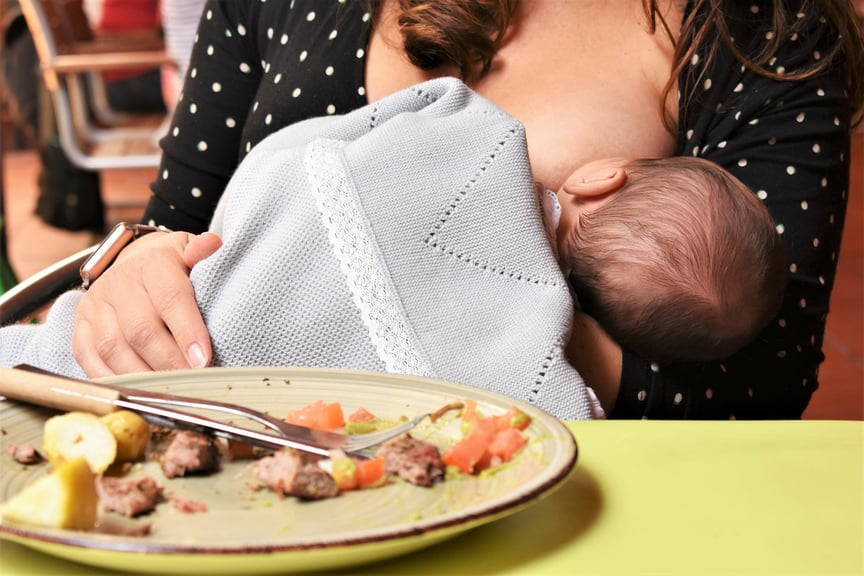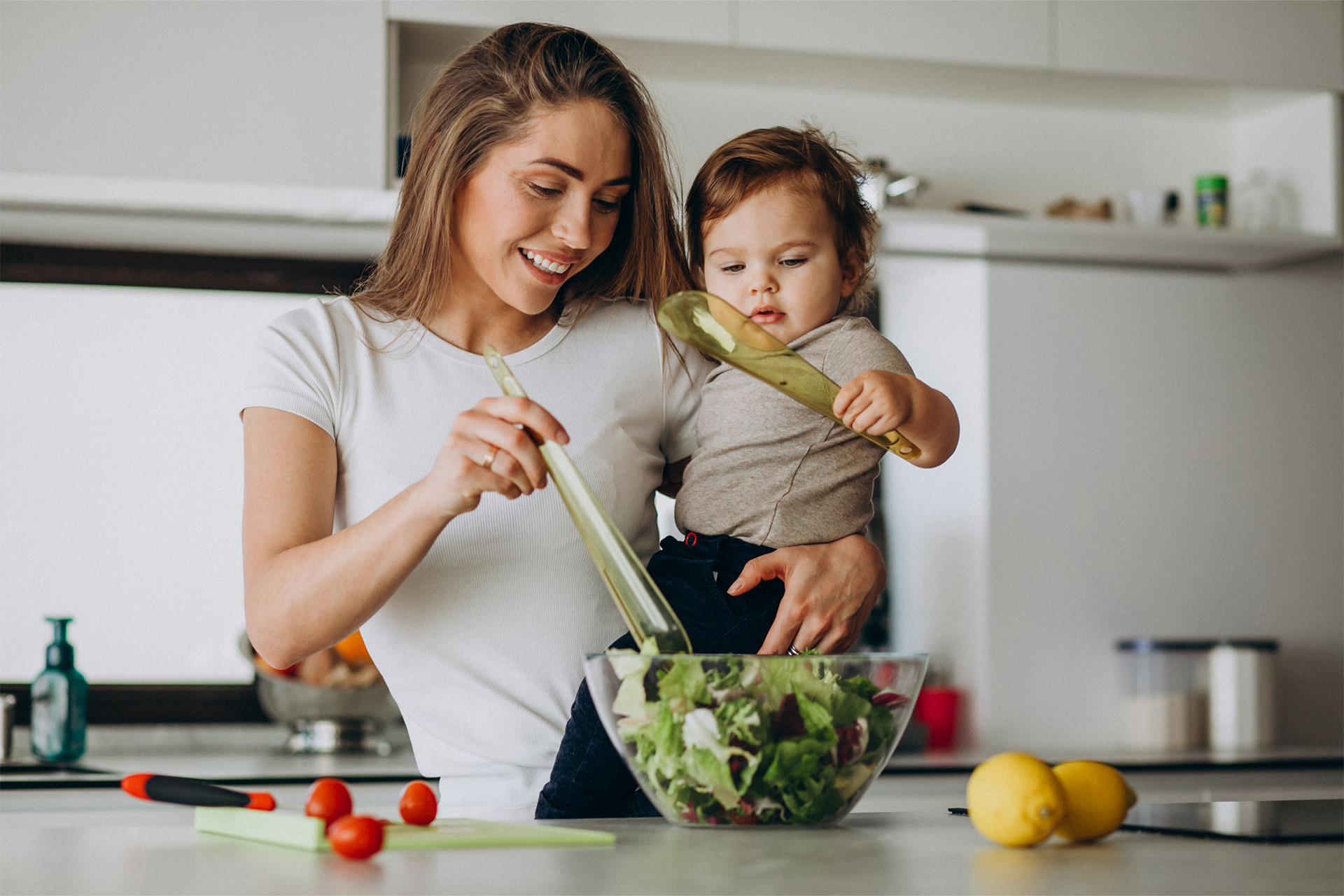It’s common knowledge that getting good nutrition before and during pregnancy is essential for the health and development of your baby-to-be. And that doesn’t stop when you give birth, especially if you plan to nourish your baby with breast milk through breastfeeding, pumping, or using freeze-dried breast milk. While many things will remain similar as you make the transition, there are a few things about postpartum nutrition for mama (that’s you!) that we think you should know.
A Table for Two (Sort Of)
When baby’s on the way, it’s natural to think you should be eating for two. When you’re breastfeeding, you might hear that you need to take in more calories to maintain your milk supply. Both are close, but neither is quite right: in both cases, you should increase your caloric intake, but experts suggest only consuming roughly 300-400 extra calories per day to do the job. Listen to your hunger, eat regularly, and don’t worry about forcing yourself to consume beyond satiety.
What to Eat While Breastfeeding
Despite what the media and diet gurus would have you believe, eating well isn’t rocket science. While it may look a little bit different depending on your personal preferences, access to healthy food, budget, and physiology, most balanced diets will include vegetables and fruits, whole grains, healthy fats and proteins, and plenty of variety. Stick to the perimeter of the grocery store, where you’ll find fruits and veggies, eggs, fresh dairy products, whole grain breads and more. Frozen fruits and veggies are perfectly fine, too. Avoiding overly processed foods, including fast food and packaged foods, is probably a good idea⸺but these won’t cause harm in moderation.
While eating a wide variety of foods may change the taste of your breastmilk, that can be a good thing: it will help your baby to expand their palate and tolerance for a wide variety of tastes that can carry over
If you avoid certain foods due to necessity or preference (meat or gluten, for example), talk to your doctor or a nutritionist to ensure you’re getting the full spectrum of fats, carbs and proteins you need.

Use Caution When Adding Vitamins or Supplements
Eating a balanced diet is important, but there still might be nutrients you are missing. Adding vitamins and supplements as needed can ensure that you’re getting the right dose of key nutrients to support your baby’s development. Make sure you know what each supplement is for and that you’re using it at a safe dose. Here are a few you might discuss with your physician or lactation specialist:
- Multivitamins: Most mamas take prenatal vitamins to cover their nutritional gaps during pregnancy, and in many cases, continuing to take prenatal vitamins through the breastfeeding process is a good option. Nowadays, you can also find postnatal vitamins, which are the postpartum equivalent to prenatal vitamins. In some cases, if mamas have too much or too little of a certain nutrient, a multivitamin may not be the best choice. Be sure to get tested so you can decide if a multivitamin is right for you.
- Vitamin D: Many regular people are deficient in Vitamin D. For mamas, it’s especially important because your baby needs Vitamin D in order to absorb other nutrients that strengthen their bones.
- B12: A B12 supplement is often recommended for vegetarian mothers since B12 is often found in animal protein.
Again, taking vitamins and supplements “just in case” is not necessarily a good idea, especially when you might not really need them. In addition, dietary supplements are not as rigorously regulated, so you don’t always know what you’re going to get. Talk to your doctor, check your levels, and be sure you’re taking only the supplements that you truly want and need, mama.
Foods to Avoid While Breastfeeding
Anything in moderation can be safe when you’re breastfeeding or pumping, especially if you wait the recommended 3-5 hours for it to clear your milk supply. However, experts generally suggest avoiding alcohol, caffeine, and fish that could be high in mercury. Talk to the people you trust, use your judgment, and do what is right for you and your baby.

Don't Forget to Hydrate
Staying hydrated is good for you as well as your milk supply. Pay attention to your urine and drink more fluids during the day as needed. Water (including sparkling water) and herbal tea are your best choices; avoid soda, fruit juice (especially the processed kind), and sugary or caffeinated drinks.
Everything in Moderation (Including Moderation)
Food and nutrition is a fraught topic for many women well before they get pregnant or start breastfeeding. If you have struggled with disordered eating or body issues, it may be a good idea to get help from a nutritionist or therapist to help you develop a sane attitude towards food and nutrition while you nourish your baby, as well as yourself. We believe in you mama, and you can trust yourself on this one. We’ve got your back!
Why should you try Bebe Bru? To become a part of your baby’s feeding revolution! Read more about our founder’s “why” here.


